The recent revelation that tipping was once banned in six states has sparked astonishment and curiosity among many.
The history of tipping in the United States is a controversial journey from its prohibition to its current popularity.
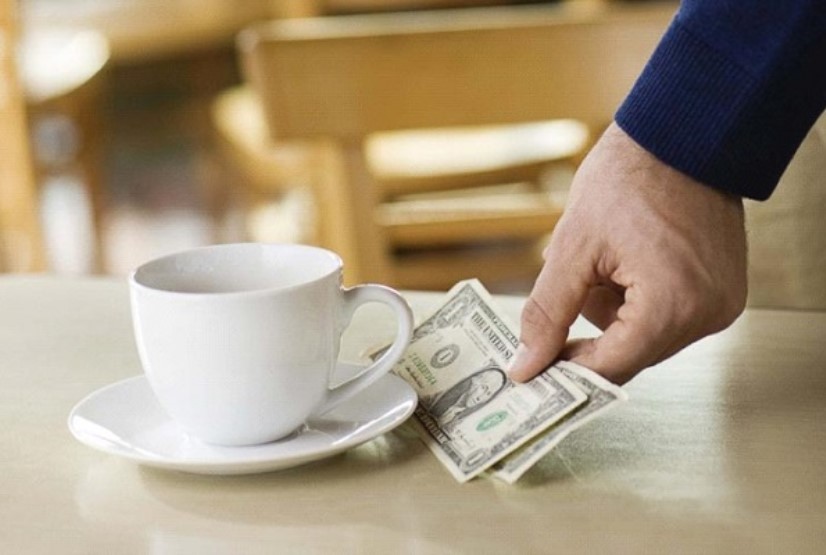
Contrary to the recent out-of-control condition of tipping, this rule was once so unpopular it was made illegal.
Unlike the popular tipping culture that exists in the US today, the attitude towards tipping in the past was quite different.
Long before, tipping was met with widespread disrespect, leading to its prohibition in certain states.
Tipping was seen as a serious problem in society.
People described it as a form of mercy if you try to tip someone. These strong feelings showed the great disapproval of tipping at that time.
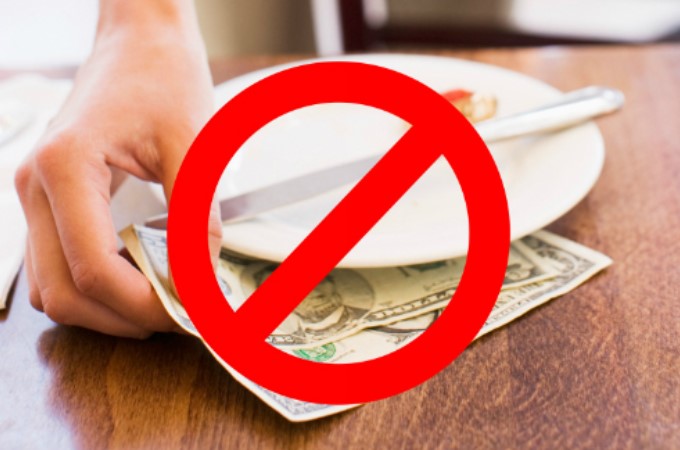
Tipping was thought to promote servility and was seen as conflicting with the democratic and anti-aristocratic principles cherished by the country.
Even wealthy individuals such as John D. Rockefeller and Andrew Carnegie were known for not tipping generously.
Ralph Waldo Emerson, a well-known writer, expressed conflicting feelings about tipping.
He described how he sometimes felt compelled to give a dollar as a tip, but deep down, he considered it to be an undesirable act.
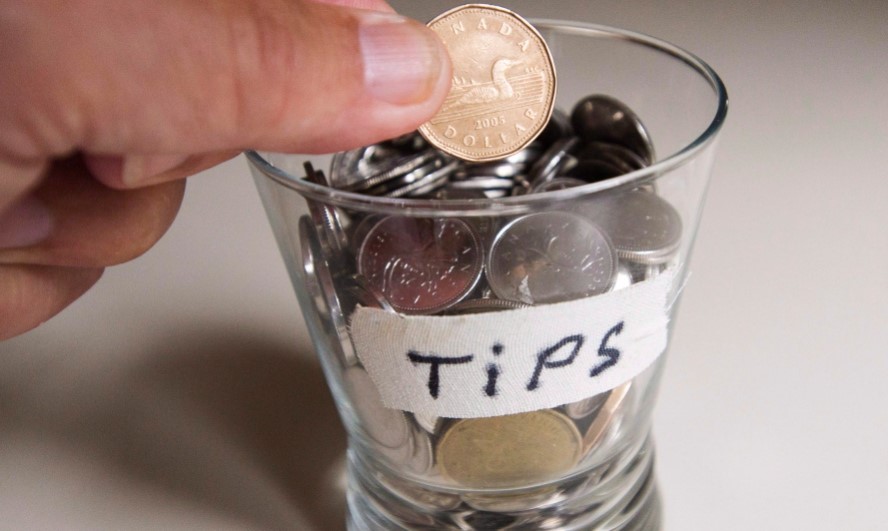
This shows the concerns and doubts people had about tipping, as well as the internal battles they experienced when tipping someone.
In 1915, a movement against tipping started to gain traction.
Several states, including Iowa, South Carolina, Tennessee, Washington, Mississippi, and Arkansas, passed laws to outlaw tipping completely.
Georgia even prohibited what they called "commercial bribery," which covered any tips that aimed to influence the level of service provided.
These laws remained active until 1926 when they were finally dismissed.

This period marked a significant time in history when tipping faced a strong backlash, with these states taking legislative measures to remove the practice.
However, tipping was finally passed and became an accepted part of American culture.
Tipping is now out of control in the United States.
Looking at the present, tipping has become deeply ingrained in American culture, although it remains controversial.
In the US, a 25% tip is generally considered acceptable, but it is still deemed excessive by many people.
However, in numerous European nations, tipping is not obligatory, and a tip of approximately 10 percent would be considered quite generous.

A Reddit post sparked a strong debate after sharing a photo of a bill with suggested tips ranging from 25% to a staggering 99% additional charge.
Additionally, the post mentions that the tip percentages are calculated based on the total bill amount after including taxes.
This has led many people to question if tipping has become excessive and unreasonable.
In the comment section of the post, many users affirmed that tipping has gone beyond its original intention and now puts excessive pressure on customers.
Among these comments, there was a user who garnered the attention of people.
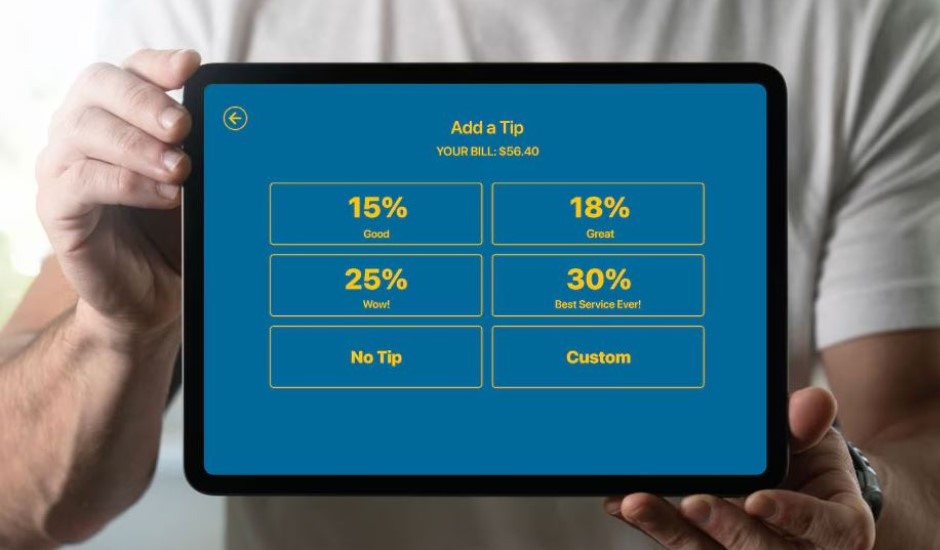
First, they expressed uncertainty about the changing norms of tipping.
They questioned when the standard practice shifted from a 15% tip for adequate service to a higher range of 20-25% or more for exceptional service.
So why do most casual facilities with standard practice require a tip of 15% from customers?
Remarkably, this is not the first time the tipping topic sparked controversy among people.
Recently, a male customer was extremely furious after realizing a restaurant lied about the tip percentage.
The TikToker revealed a discrepancy between the amounts on the bill and the corresponding tip percentages.
In the video, a receipt for a $20 bill was shown, with suggested tips of $5.02 for 15%, $6.02 for 18%, and a surprising $6.69 for 20%.
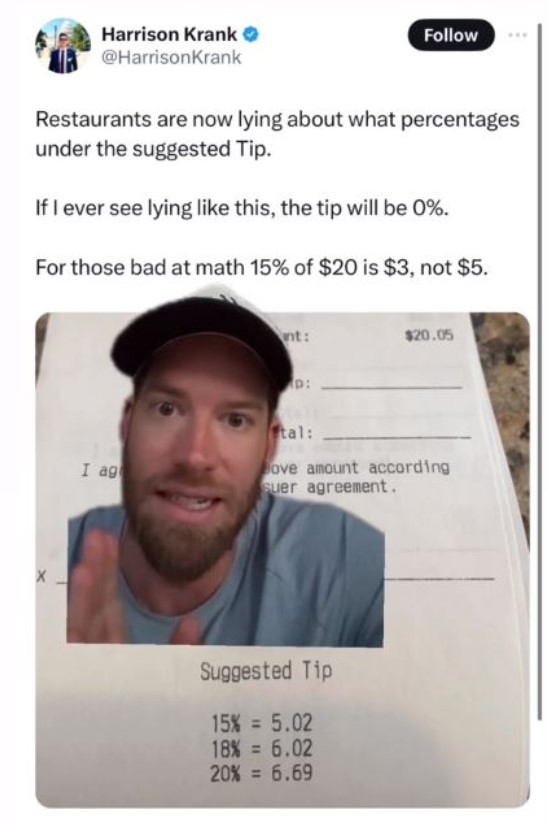
However, if you recheck, a 20% tip of $20 should be $4.00 instead of $6.69 as listed on the bill.
In the last video, the customer advised viewers to carefully examine these pre-calculated tip amounts because they usually confuse customers due to their 'convenience.'






